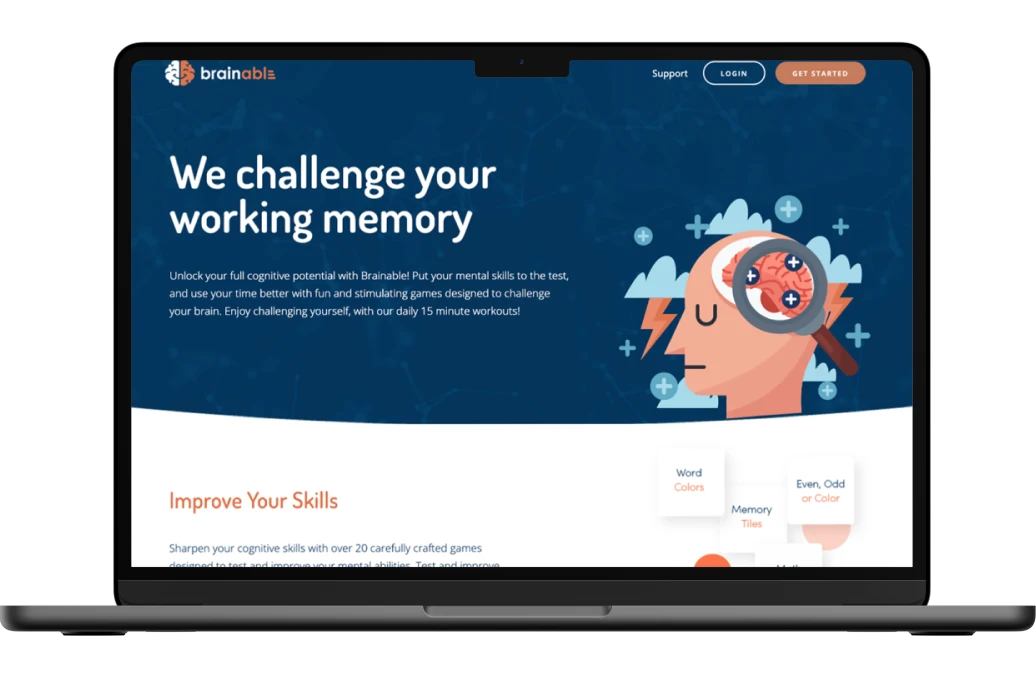Real estate investment is a difficult and often stressful process. In this article, we discuss the application of AI in real estate investments and whether it can help consumers.
Imagine a technology that can react to real estate offers in milliseconds. It may seem futuristic today, but this technology already exists in the form of artificial intelligence or, more precisely, AI algorithms. For example, many businesses in the stock market are using advanced algorithms to trade stocks quickly, making investment decisions faster than any human can. Given its substantial similarity to the stock market, this technology will likely become highly popular in AI real estate investment. In this article, you’ll learn how AI and ML interact and, more importantly, how these technologies can create significant benefits and drawbacks for your business. We’ll start with eight use cases of AI real estate solutions and then discuss the potential risks of the technology.
Eight Ways AI Can Help With Real Estate Investment: Key Use Cases
Let’s review eight potential AI real estate investing use cases and the way they can have a positive long-term impact on your business:
Market analysis
The most popular way to use artificial intelligence in real estate undoubtedly involves analytics. Artificial intelligence is a technology that is ideally suited to this goal. Why? AI can analyze vast amounts of data: for example, ChatGPT was built on 45 terabytes of human text. The results are staggering, as most people know, since the technology can write human-like essays at 200 words per second and more.
Similarly, there’s an opportunity to use AI for real estate investment. AI for real estate investment can analyze tremendous amounts of general information from the market and your firm to produce a full-scale set of insights capable of helping decision-makers make fast investment decisions in the modern, highly competitive market. What are the capabilities of AI in this regard? For instance, AI can help predict long-term trends in the market. It can spot many markers of problems or positive movements on the market that lead to a fall or rise in real estate prices. Ultimately, this information should be sufficient to significantly speed up the decision-making process in your firm and prevent situations in which you miss market trends.
Finding new customers and advertising
A significant part of the proper investment process is finding customers and properly advertising properties. For instance, imagine you must sell several properties to reinvest in more promising cases. AI is capable of analyzing property conditions and then offering your existing properties to customers who need them. Modern economic theories highlight that value differs for various groups: what’s valuable for some individuals is less useful for others. This means that AI in real estate investment offers a perfect way to make you and the relevant customers happy as you all get the properties you want.
Another vital application of AI undoubtedly has to do with advertising. In this regard, artificial intelligence helps both with the creation of advertisements and the search for relevant properties through existing adverts. On the one hand, you can use this technology to create ads that specifically target particular population groups. AI can now generate them entirely automatically thanks to tools like DALL-E. On the other hand, it’s also rational to use AI to, for example, analyze existing advertisements. Tools like ChatGPT now have access to the Internet, so it’s possible to utilize them to review vast amounts of information on the Web. Ultimately, this means that artificial intelligence is a perfect copilot for finding potential buyers and sellers of various properties.
Recommendations for portfolio management
A portfolio of various properties that are constantly growing in price is among the main goals for any real estate company. Artificial intelligence is a technology that will soon become indispensable for managing those portfolios. We believe there are several reasons for this change.
Firstly, as mentioned before, artificial intelligence can analyze vast amounts of data. This way, it can find patterns that indicate your portfolio’s long-term positive and negative trends. AI is a perfect warning system that can indicate that something goes wrong with your investments and prevent long-term incorrect decisions.
Secondly, the systems in question can create new content, too. Large amounts of data are notable for their ability to combine into so-called Big Data that can offer additional long-term insights for the core decision-makers. In this way, the systems can provide some warnings for portfolio management and later transform them into advanced insights that will assist with making informed decisions.
Having an AI copilot that will do a significant part of analytics for you is an asset that many firms may be willing to adopt. The faster you do this, the better. Integrating AI is essential because soon it will be all-pervasive, and the quality of AI models will often define the overall capabilities of the firms in question.
Property management

As we note in many articles, selling properties is not enough if you want to succeed in the real estate market. You also need to maintain them and, in this regard, generative AI and many other algorithmic AIs help automate the core processes in your firm.
How can AI help with property management? There are multiple ways in which this technology can be helpful today.
The first reason to use an AI real estate investment is to monitor your sensors automatically. What does this entail? You can connect your artificial intelligence tools to review the overall state of the sensors and the long-term tendencies in their values.
More importantly, AI can analyze large amounts of data to produce predictive forecasts for investors. In short, it can monitor what is happening in your firm and transform these insights into long-term recommendations for every stakeholder.
Wholesaling real estate
A significant investment sector in real estate has to do with the so-called wholesaling. Wholesalers enter purchase agreements with customers and then resell them to other individuals. Usually, the initial deal, before the resale, is less costly. However, investors often face significant risks. For example, they may purchase houses from other firms in the construction stage. Therefore, the risk of the construction process not being completed is always relatively high.
AI for real estate investments is here to assist investors with achieving a higher level of security during the wholesale investment stage. How does this technology accomplish this goal? Its first advantage is the ability to analyze deals and offer predictive analysis for various investment strategies. Moreover, the technology is also notable for one more capability: it can simply automate many aspects of wholesale document signing and advertisement. In this way, the relevant investors can manage their investment portfolios in a much more proactive and high-speed fashion. In some cases, AI-driven tools will perform 90% of the deal finalization process.
There are some additional aspects that you need to consider in this case. AI is becoming advanced in its ability to create content, too. Thus, you can use the technology to, for instance, develop advertisements and even generate them more or less automatically. Leveraging AI potential is now possible in many fields.
BRRRR (Buy, Rehab, Rent, Refinance, Repeat)
A common strategy real estate investors use is the so-called BRRRR or Buy, Rehab, Rent, Refinance, and Repeat. This strategy is considered relatively safe and is usually used by investors who are only beginning to work in real estate. The idea is to rehabilitate a home in a substandard state to get better refinancing deals and earn on rent due to the massive appreciation of house prices.
The problem with this strategy is that it is very high-risk in certain situations. By investing in the BRRRR strategy, you, more or less, rely on the appreciation of house prices. The problem is that sometimes, this may fail to manifest because of the market factors that belong to the traditional PESTLE group.
AI is a technology that can assist investors with analyzing potential investment opportunities and preventing situations in which those opportunities would fail to manifest. For example, a common problem with BRRRR is that the market can experience a significant downturn, or rent prices can fall. AIs can analyze various trends and, as a result, produce warnings in case investments at a certain point become too dangerous and unreliable. Predictive analytics is essential for BRRRR due to its relatively low but existing risks. The technology can significantly increase the number of successful deals for large firms. For smaller ones and, especially, first-time investors, it’s essential to prevent low-quality investments’ negative long-term consequences.
Tenant Management
Providing properties for rent is among the core reasons to consider AI real estate investment. It’s not enough to buy a property and offer it for renting. You must also find a tenant for it and then manage their experience. In this respect, AI for real estate investment is among the most powerful technologies for organizing an optimal tenant experience.
On the one hand, this technology can improve it through various features like automated response and automated data provision and payment. On the other hand, AI is great for property owners, too. AI can highlight the tenant’s payment discipline and various long-term requests. In this way, there’s less need to monitor particular properties personally.
The technology is also essential during the tenant selection process. It can assist tenants with finding the optimal property features through intelligent search, for example. Moreover, the technology is also notable for its capability to adjust prices based on existing market trends, making it great for optimizing property investment decisions.
Risks of Using AI in Real Estate Investing

Nonetheless, you should also understand that there are some risks to using AI in real estate investing. While the technology is essential for high-quality decision-making, it’s also notable for some biases and the possibility of creating over-reliance on this technology. In the following sections, we review those problems in depth.
Data quality and bias
The first problem of AI for real estate investing is the possibility of low-quality advice based on similarly low-quality data and, of course, bias. AI heavily relies on the data its creators offer. On the one hand, there’s a massive risk of encountering data that is without substance or even openly misleading. On the other hand, humans can add their biases to data, creating texts that promote the interests of specific groups over others. If AI for real estate investing learns from this data, it can easily recreate the very biases of its creators in the decision-making process. Ultimately, those characteristics can mislead a property manager and push them towards property sales that are simply suboptimal.
Over-reliance on technology
One more threat to AI is the over-reliance on technology. When we use AI in real estate investment, we delegate a part of our decision-making process to machines. As a result, there’s a risk of unlearning specific vital skills in the process. For example, a realtor who relies on calculations via AI risks forgetting how to do them personally. This over-reliance can play a negative role in the competence levels of specialists. One system-wide bias may become capable of disrupting the whole industry. Thus, while we see AI as a perfect tool for property sales, we also believe that it’s essential to consider potential regulations within the sector.
Lack of transparency and explainability
AI for real estate investment is notable for one more problem: we rarely understand the principles according to which it works. When humans train neural networks, they de facto create a black box, which is always difficult to analyze. As a result, understanding the reasoning of AI may be difficult, leading to decisions about property valuation made purely based on trust towards technology.
Cybersecurity risks
AI models available on the market today are notable for many cybersecurity risks. For example, some of them have leaked personal user information. In many cases, the employees of AI firms can actively review your requests. This means that there’s always a risk of leaking vital information about a particular business within the real estate industry AI. For this reason, the best option for most customers is to consider custom AI models isolated from the Internet.
The future of AI in real estate investment
Ultimately, we believe that the future of AI in the real estate market is nonetheless bright. The reason for this is quite simple. Artificial intelligence is simply too powerful in terms of analytics to ignore. Progress in this technology will involve two major sectors:
- We expect the rise of highly private AI models like Apple Intelligence in the upcoming years. More importantly, real estate professionals have an apparent demand for lower bias levels. Many AI firms are actively investing in their anti-bias models these days. Aspects like interface streamlining are also likely to become vital soon.
- New capabilities: AI will likely become much better at math and information monitoring in general. Its models are becoming increasingly complex, offering exceptional capabilities for all involved decision-makers. We are also likely to see more embedded custom-made AIs that target the specific needs of tenants and real estate owners. Adding custom APIs and other core tools will make many AIs customizable in the long term.
Bottom Line
To summarize, we see massive promise in the interaction between the AI sector and real estate. Within 5 to 10 years, most of the problems above will be solved, creating an unprecedented era of AI development. What does this mean for firms on the market today? Above all, we recommend adopting the systems in question as soon as possible. The more experience you have at the future point of AI triumph, the better.
Developing AI for Real Estate Investment with Keenethics
Keenethics brings exceptional expertise in custom software development for the real estate industry, with a strong track record in creating AI-driven solutions for diverse companies. We have successfully integrated AI into a variety of businesses, making us a reliable partner for developing AI tools for real estate. Whether you need property tours solutions or comprehensive analytical platforms tailored to the real estate sector, we’re ready to deliver innovative and effective products.
Join this future together with Keenethics!












